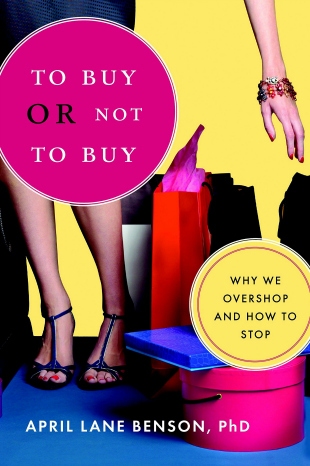"Throughout this book, you've been fortifying yourself with an arsenal of tools, skills, and strategies to fight off affluenza, our national (and increasingly, global) epidemic of overconsumption. Before we conclude our work together, I want to introduce you to three powerful and intimately related ideas: the cultivation of 'true wealth,' the consideration of voluntary simplicity, and the contemplation of wabi sabi. All three are designed to optimize present and future happiness.
"True Wealth, a 1990 book by Paul Hwoschinsky, offers a persuasive antidote to rampant materialism. Hwoschinsky suggests that true wealth is attained by leveraging those nonfinancial assets, different for each person, that invigorate and vitalize: talents, hobbies, close connections with other people and animals, communion with nature — food for our neglected spiritual and emotional appetites. Materialism, he notes, focuses on status, power, and control; it cannot fulfill us. True wealth can and does, by embracing self-acceptance, personal growth, intimacy, creativity, curiosity, courage, integrity, compassion, forgiveness, and community feeling. Hwoschinsky's arguments, strong when the book first appeared, seem more and more powerful with each passing year.
"A second lifestyle idea, voluntary simplicity, whose origins go back to the nineteenth century, is more popular today than ever before. It's a movement that encourages people to redefine the good life, to seek lives outwardly simple and inwardly rich. Calling into question the values of material wealth and status, it focuses instead on frugal consumption, ecological awareness, moral responsibility, and the development of the wisdom to think through — and act upon — what really matters. Lao-tzu poured the foundation for this movement twenty-four centuries ago, saying 'He who knows he has enough is rich.' (The converse is true as well: he who has enough but doesn't know it is poor.) Voluntary simplicity turns away from activities that have repeatedly failed to deliver satisfaction and contentment — mindless shopping, for example, or competitively scrambling up the career ladder — and embraces instead the joys of creativity and community. It celebrates everyday life.
"A third stance toward life, wabi sabi, is an integral part of traditional Japanese culture. It 'appreciates and accepts complexity' even as it values simplicity, tranquility, and naturalness. Wabi suggests rustic simplicity: freshness, quietness, and understated elegance. Sabi is 'the gloom of time,' the natural progression of tarnish and rust, the extinguished gloss of that which once sparkled. It accepts and embraces the patina that comes with age. In contemporary American culture, objects are discarded well before they reach this point; instead, something new is acquired. We're so busy trying to stay new, young, and unworn, constantly updating, upgrading, renovating, and attempting to reinvent ourselves, that we miss precious opportunities to form deep and abiding attachments to objects we already have — to say nothing of the people we love. Wabi sabi acknowledges that nothing lasts, nothing is finished, and nothing is perfect. 'To accept these realities is to accept contentment as the maturation of happiness, and to acknowledge that clarity and grace can be found in genuine unvarnished existence.'
"Each of these stances I've just lightly sketched — true wealth, voluntary simplicity, and wabi sabi — is a way of looking at and living your life beyond the incessant gravity of consumerism, out of the centrifugal whirl of overshopping. Each can anchor the work you've done in this book."
